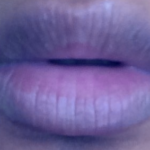‘Supernumerary teeth’ is an oral condition marked by presence of more than normal number of teeth. Also known as hyperdontia, it is a rare abnormality that affects about 1 to 4 percent of children.
Children typically get their milk teeth, 20 in number, before age 3 years. The deciduous teeth begin to shed around 5 to 6 years of age. 28 permanent teeth appear and replace the milk teeth by age 12 years. 4 wisdom teeth appear between ages 17 and 21 years. Appearance of teeth in excess of that stated above, at any of the stages, is referred to as supernumerary teeth.
The additional teeth may not necessarily develop on the gum line; it can form anywhere in the mouth. Also, extra number of milk teeth increases the chances of permanent supernumerary teeth in affected children.
Symptoms of supernumerary teeth
Supernumerary teeth do not cause any discomfort or pain in the affected child. However, it can result in the below listed problematic signs and symptoms:
- Obstructs eruption of normal tooth: One of the main adverse effects of supernumerary teeth in children is delayed or no development of permanent teeth.
- Teeth crowding: The oral cavity and gum line are made to permit the normal number of teeth. Hence, extra teeth will cause the teeth to become crowded and increase the risk of dislodgment and distortion of teeth. This can pose problems in biting or properly chewing food.
- Dislocation of normal teeth: The additional tooth tends to displace nearby normal teeth from its correct location. Such dislocations may range from minor to full rotation which can mess up the original alignment.
- Increased risk of cavity formation and tooth decay: Teeth that are abnormally sized or shaped are susceptible to tooth decay due to increased chances of food getting trapped between the teeth. Such abnormal teeth can also pose problems in brushing properly and thoroughly.
- Speech problems: Excessive number of teeth in the mouth can adversely affect the child’s ability to speak clearly. Subsequently, problems in articulation of words as well sounding different than others, can unfavorably affect the psyche of the child and his/her learning capabilities.
- Development of tumor or cyst: Children with supernumerary teeth are susceptible to formation of cyst or tumor.
- Abnormal appearance of the face: Teeth typically do not play a role in defining the facial appearance. However, excess number of teeth in the mouth can result in abnormal looking face, which can then lead to low self-esteem and low confidence in the child.
Causes of supernumerary teeth
The exact cause of supernumerary teeth is currently not known. The condition becomes noticeable after children begin to shed the milk teeth.
- There are no ways in which extra teeth may grow. It may form from an additional tooth bud present in gum tissue, or it may develop due to division of a permanent tooth bud into 2 distinct parts; this leads to formation of 2 teeth, one from each section of the split tooth bud.
- The extra teeth can be situated anywhere within the mouth; it can develop on the roof of the oral cavity or behind, between, or in front of permanent teeth. Supernumerary teeth can be bilateral, single, unilateral, multiple, un-erupted, or erupted.
- Some experts believe that there are genetic causes of hyperdontia. This is because parents with hyperdontia have a higher tendency to bear children with extra teeth. Other experts are of the opinion that certain unknown environmental elements may contribute to the development of the condition.
It has been found that children with supernumerary teeth may also suffer from the below listed conditions:
- Ehlers-Danlos syndrome, a rare inherited diseases marked by different problems of connective tissue.
- Cleidocranial dysostosis, an inherited condition that affects the growth of teeth and bones, is marked by partial or total absence of the clavicle bone.
- Children with cleft palate or cleft lip may also have supernumerary teeth. The extra teeth are usually located on either side of the cleft palate or lip.
- Down’s syndrome, a chromosomal genetic condition, patients usually have additional teeth.
Treatment of supernumerary teeth
Parents of children with supernumerary teeth should visit a dentist irrespective of whether or not the condition causes discomfort or other adverse problems. The dentist will carry out varied tests and then decide whether treatment is needed or not. A few treatment options are listed below:
- The additional teeth can be extracted. This treatment is very effective. The extraction is performed under local anesthesia.
- The additional teeth generally affect the teeth alignment. Hence, doctors may go for orthodontic options like dental braces for strengthening and re-aligning the teeth. This is especially necessary if supernumerary teeth have been extracted.
- In case additional tooth has fused with a permanent tooth, then dentists may opt for endodontic treatment, which is just like a root canal. After the development cycle of a melded tooth’s root is complete, the tissue around it is removed. Then, the dentist will surgical take out the fused tooth.


